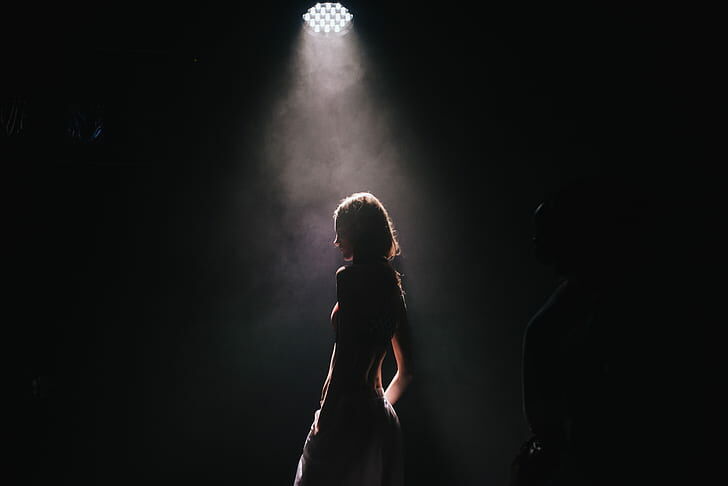THE STAGE 32 LOGLINES
Post your loglines. Get and give feedback.

THE MADNESS OF BETHANY ROSE
By Craig McLearie
A young theatre actress is given the lead role in a new Play in England, one that will make her famous and push her to give the performance of her life. But as the rehearsals begin, and opening night approaches, Bethany Rose begins to lose track of what's real and what's make-believe.
SYNOPSIS:
My idea for this film is based on the film-within-a-film theme. This is a Film of a
Documentary about the processes of bringing a Theatre Production to the stage; a
fly-on-the-wall account of what is involved.
The film begins with the Director of a Theatre House and the Cast of the show being
interviewed by a Documentary Film Crew. The Director of the Theatre Play is
Raymond Marks (40’s, James Mcavoy-type), and the two lead actors are Andrew
Harris (20’s, Charlie Hunnam-type) and the titular character, Bethany Rose (20’s,
Felicity Jones-type). They begin by talking to the unseen Director of the
Documentary about their lives and the rehearsal process they will go through to bring
life to the Play.
The Theatre Play is about the Witch Hunt Trials of the early 18th Century in England.
The woman that Bethany is portraying is Elizabeth Shaw, a woman who was found
guilty of Witchcraft, and ultimately hanged.
As the story unfolds, we witness the rehearsals Documentary-style. We see Ray
Directing the Cast and Crew of the Theatre Play (stage blocking, lighting and music
cues...). Things soon become tense with egos and stress getting the better of the
participants. Bethany finds it exceptionally difficult because of Ray’s perfectionist
tendencies and his disregard for her health when she is pushed further and further
into her character.
Things within the play begin to cross the line of reality and fantasy and Bethany
begins to feel the influence of Elizabeth Shaw on her conscious mind, as if
Elizabeth’s soul has been invoked by some unknown means. Events begin to
happen while the actors are rehearsing and Bethany at times doesn’t know what is
real and what is supposed to be a part of the Play, similarly how as a member of the
audience you are invited to suspend your disbelief and become immersed in
everything that happens on the stage. This intensifies her fear and increases her
disorientation.
At this point things slowly begin to change stylistically as well. At first it is pure
documentary footage we witness (hand-held camera, eye level views, zooms in and
out, the camera racing to capture action/reaction shots). This style is similar to the
Dogme 59 style of filmmaking. As the rehearsals progress, so too does the
invasiveness of the camera. It begins to capture shots of the actors in very personal
situations, as if the “fourth wall” is put up and they have no knowledge of the camera.
It is no longer a Documentary but instead it has metamorphosed into a Film proper,
like a Lynchian nightmare come to life.
Further along in the film, as tensions rise, Bethany experiences lapses in time and
memory where she loses track of whether she is being regarded as Bethany
(actress) or Elizabeth (character).
The ultimate reversal in the structure occurs when Bethany (thinking they are still
rehearsing) believes that the Play is finally being watched by an audience and she
has no way of pausing the performance like she did in rehearsals. Instead, she has
to persevere in order not to break the illusion, for the sake of Art and her career.
The tone develops from the nervous excitement in the opening scenes of the actors
talking to the Documentary Crew, to the tense drama as we view the rehearsal
process, to a dark and twisted nightmare of surrealism when the structure shifts in
the latter part of the film.
It’s a commentary on different formats of storytelling (theatre, film, documentary and
television), and with each shift in format it changes tonally as well. When the actors
are aware there is a camera watching them, they are “acting” for the camera. When
they are unaware of the camera, they reveal some secrets that otherwise wouldn’t
be evident.
Bethany’s character goes through the cut-throat business of theatre, having to
endure the stresses of perfectionism, but also the threat that her part could easily be
supplanted. There is also a theme of karma in that she inherited a previous role due
to the unfortunate accident that befell the woman she was understudying, and there
is a fear that the same thing could happen to her. Paranoia occupies her thoughts,
especially because Ray spends a lot more time with Bethany’s understudy than he
does with her. Bethany endures all of this, grappling to keep hold of her role, her
dignity, and her sanity.
Her moment of clarity comes when she realises that she can’t change anything that
has come before, because once she believes the play is being watched there is no
alternative. Her perseverance is the only option she has, relinquishing control, and
absolving herself of past indiscretions.


Rated this logline
Rated this logline
Rated this logline
So... Black Swan?